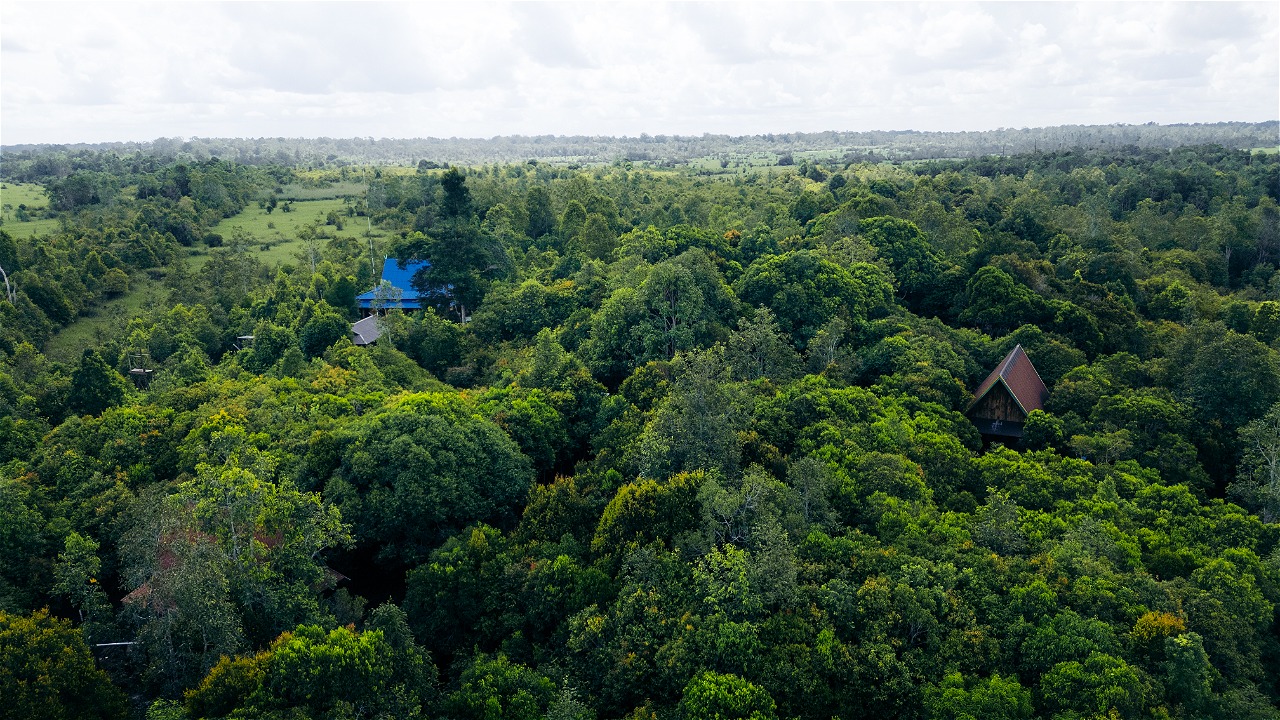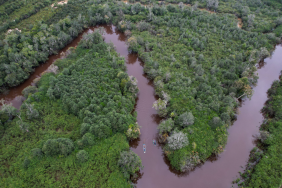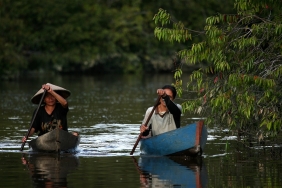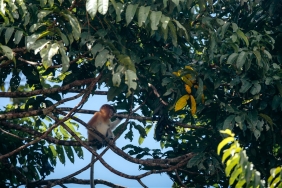6TH HEART OF BORNEO TRILATERAL MEETING REVEALS THE HUMAN SIDE OF THE HEART OF BORNEO
The community aspect in the Heart of Borneo (HoB) was the main topic at the opening of the 6th Heart of Borneo Initiative Trilateral Meeting, held in Kuching, Sarawak, Malaysia, last September 2012.
The Board of Trustees of WWF-Malaysia, represented by Jayl Langub, officially launched 'The Human Heart of Borneo', a new publication produced in collaboration between WWF and the three countries of Borneo, as a tribute to the ethnic communities living in the HoB area.
Mr. Jayl underlined that the value of the natural and human resources contained within the transboundary areas of the HoB is worth more than money, and should be respected, upheld and sustainably managed as a legacy for future generations, as the ethnic communities have been doing for many years.
"For those of us who see the value of natural resources from the point of view of money, it will be difficult to appreciate the way ethnic communities relate to nature", said Mr. Jayl.
"However, by looking at how ethnic communities relate to nature, then we can hope to ensure the health of nature for generations to come", he continued.
This publication on the ethnic communities of the Heart of Borneo, which provides a glimpse into their traditional way of life, aims to raise awareness of the rich biodiversity, culture and ethnic heritage encompassed in the transboundary region between East Malaysia, East Kalimantan (Indonesia) and Brunei Darussalam, which contains approximately 22 million hectares of tropical forest.
Interviewed by Borneo Post media, Wisnu Rusmantoro, HoB National Coordinator for WWF-Indonesia, appreciated the governments of Indonesia, Malaysia and Brunei for recognizing the significant HoB and working together to realize the vision of HoB sustainable development principles through research and development.
He also highlighted the importance of getting support and participation from local communities and governments for conservation and sustainable development in HoB.
"These communities have strong social, cultural and religious connections with nature. If the forests in the Heart of Borneo are lost, then it is very possible that local communities will also be lost. The key word for this issue is sustainable development. If there is no conservation, development cannot work either", said Wisnu.
Trilateral Meeting
After the opening, the formal meetings of the three HoB countries in the following days were an opportunity for the three countries to report on the progress made since the previous trilateral meeting in 2011.
Indonesia reported on progress in transboundary conservation and ecotourism management, and the Muller-Schwaner campaign as a conservation area, as well as progress on sustainable finance and the development of a political platform and partnership forum to support the investments outlined in the HoB Green Economy Roadmap.
Brunei Darussalam reported on the progress and development of the Heart of Borneo Initiative which focuses on stopping cross-border illegal trade in forest products including wildlife, promoting nature tourism, sharing knowledge and experience for forest management (wildlife, tourism and water management), and the inauguration of a buffer zone between Brunei's administrative boundary area and Sarawak.
The report submitted by Malaysia reflected on three priorities, namely strengthening the network and connectivity of protected areas, establishing sustainably managed forest corridors and enhancing cross-border cooperation. Malaysia emphasized the importance of seeking sustainable funding for conservation, enhancing synergies between existing initiatives and broadening stakeholder participation.





